Question And Answer
Publications
Articles, publications, books, tools and multimedia features from the U.S. Institute of Peace provide the latest news, analysis, research findings, practitioner guides and reports, all related to the conflict zones and issues that are at the center of the Institute’s work to prevent and reduce violent conflict.
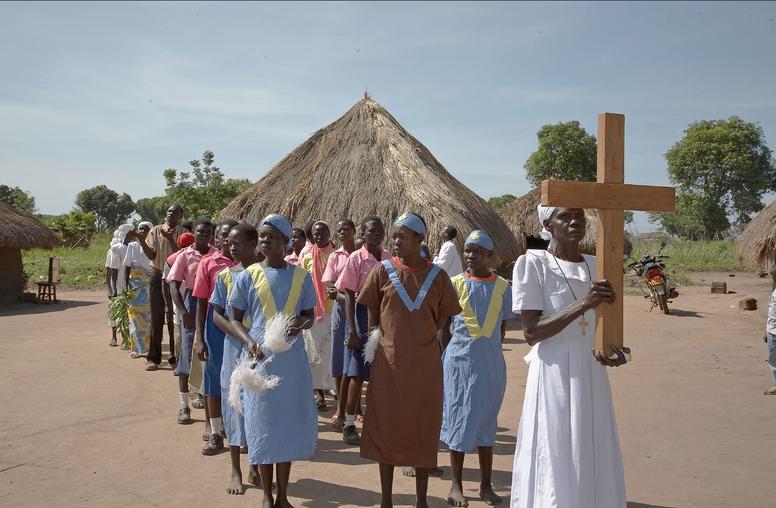
The Religious Landscape in South Sudan: Challenges and Opportunities for Engagement
Since the beginning of South Sudan's civil war in 2013, the country's religious actors have sought to play an active role in turning the tide from war and violence to peace and reconciliation. Drawing on interviews, focus groups, and consultations, this report maps the religious landscape of South Sudan and showcases the legitimate and influential religious actors and institutions, highlights challenges impeding their peace work, and provides recommendations for policymakers and practitioners to better engage with religious actors for peace.
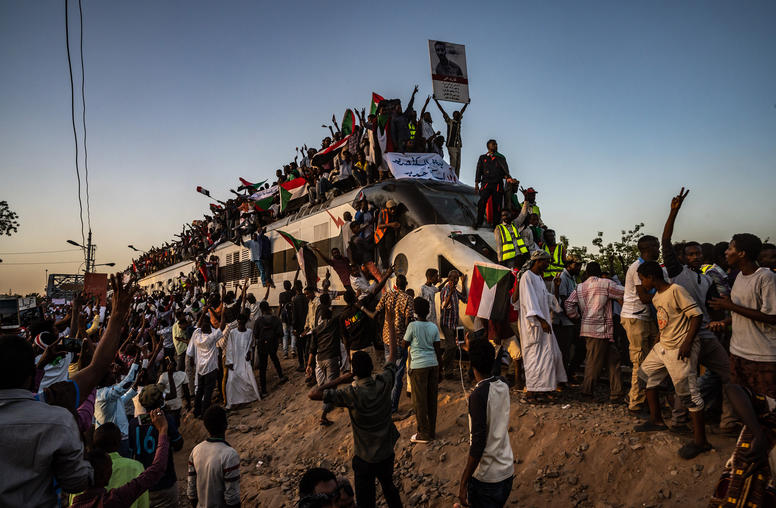
Sudan Remains at a Stalemate After the Military’s Crackdown
It’s been over two months since Sudan’s longtime dictator, Omar al-Bashir, was overthrown by the country’s military following months of popular protests. On June 3, the Transitional Military Council (TMC)—which has been ruling since Bashir’s ouster—escalated its lethal crackdown on peaceful protesters in Khartoum and other cities. The protesters say that their demand is the same as before—a transition to civilian rule—but that they will not negotiate with the TMC unless it first meets certain conditions. What’s happening in Sudan? When will negotiations on the country’s transition resume? How can the international community help? USIP’s Elizabeth Murray discusses the latest on the situation in Sudan.
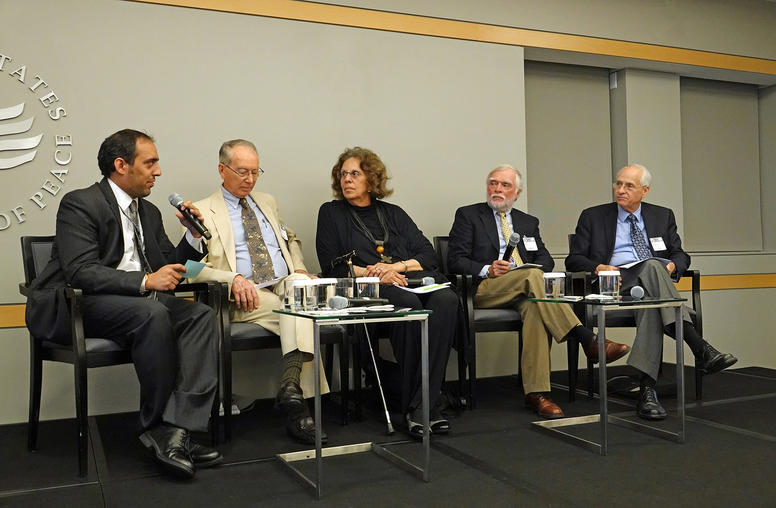
In Ethiopia, Former U.S. Diplomats See Promise in Reform
In Ethiopia, political prisoners are free and the security services revamped. Women now comprise half the cabinet, and serve as ceremonial head of state, chief justice, and chair of the electoral commission. Significant steps have been taken toward resolving a 20-year conflict with neighboring Eritrea and reforms to unleash the economy—already one of Africa’s fastest growing—are ostensibly on the way. Elections are slated for next year. Under Abiy Ahmed, the nation’s popular new prime minister, Ethiopia is changing in ways long desired by American policymakers, agreed four former U.S. ambassadors to the country. Yet the most the U.S. is likely to do is offer encouragement and a bit of support, they said.
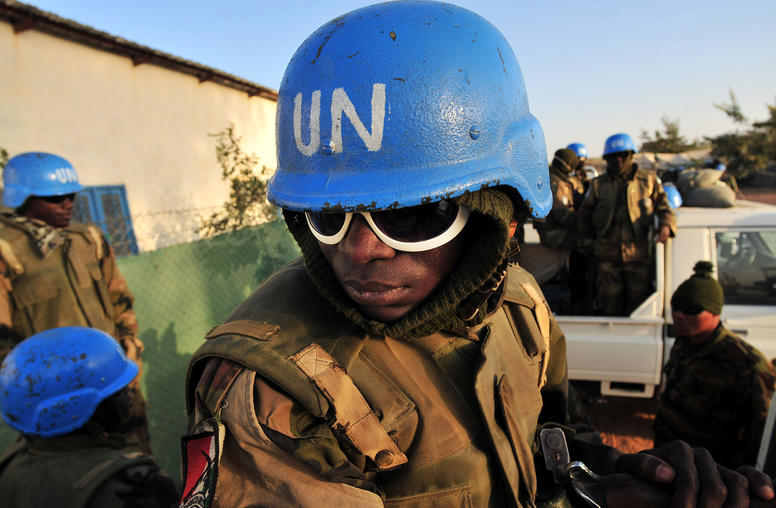
In Downsizing the UN–AU Mission in Darfur, First Do No Harm
Sudanese security forces attacked Khartoum’s central protest site on Monday, killing at least 35 civilians. The transitional military council (TMC), the junta which in April toppled Sudan’s longtime p
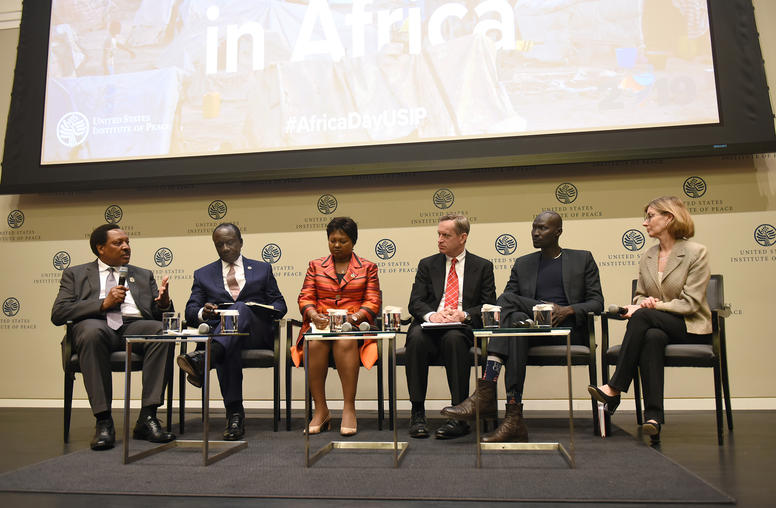
How to Address Africa’s ‘Staggering’ Displacement Crisis
Fifty years after the Organization of African Unity Convention on Refugees and 10 years after the Kampala Convention on Internally Displaced Persons (IDPs), Africa faces a crisis of forced displacemen

Payton Knopf on the Stakes in Sudan
What’s at stake in Sudan as tense negotiations between the Transitional Military Council and protesters continue? “We need to see a swift transition to civilian-led rule,” says Payton Knopf. “Otherwise I’m afraid what will result is increased instability … or potentially a catastrophic failure of the state.”

Thomas Hill on the Upheaval in North Africa
From Algeria to Libya and beyond, North Africa has been roiled by unrest in recent months. USIP’s Thomas Hill says at its core this turmoil is the result of “governments having not performed to the degree that they [the people] want or need them to” and discusses how it impacts U.S. interests.
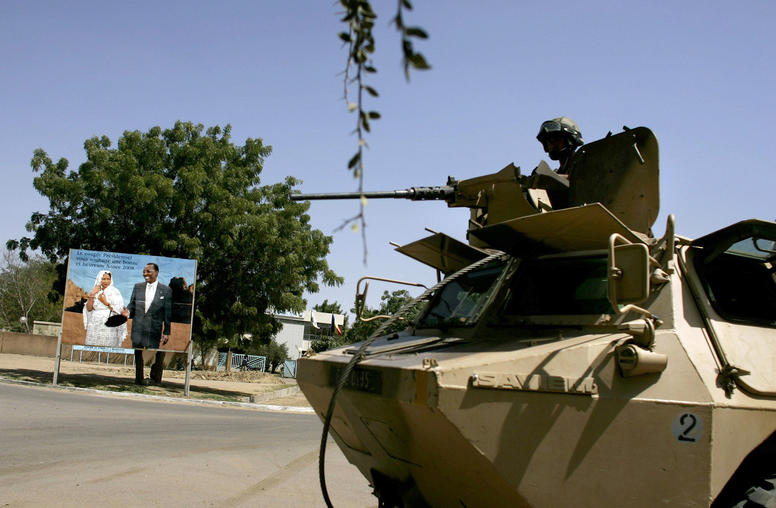
Chad, and Darfur, After Bashir
The politics of the Central African nation of Chad are closely connected with those of Sudan, most prominently because of Darfur, the vast and troubled Sudanese region which borders Chad to the east. The recent fall of Sudan’s president Omar al-Bashir—in power since 1989—raises questions about the future of Chad’s president and U.S. ally, Idriss Déby, beset by similar governance challenges and in power since 1990. Jérôme Tubiana, co-author of a 2017 USIP report on Chad, and USIP’s Aly Verjee discuss the implications of political change in Sudan for Chad.

Susan Stigant on the Turmoil in Sudan
The overthrow of longtime dictator Omar al-Bashir could have important implications for Sudan and the broader region, says Susan Stigant. “What we see in Sudan at the moment isn’t just about what’s ha
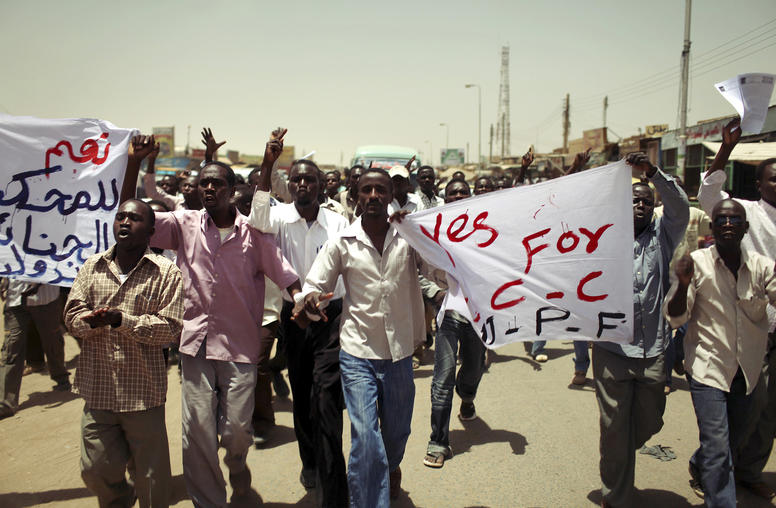
After Bashir, A New Dawn in Sudan? (Part 1)
Longtime Sudanese dictator Omar al-Bashir was ousted last Thursday, 30 years after he took power in the same fashion he was overthrown: by a military coup. The military takeover was spurred by months of popular protests over rising food prices, economic mismanagement and demands...